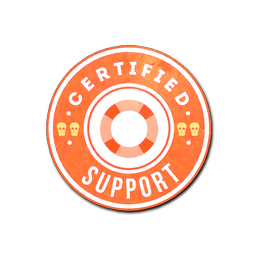Dasiwang: Your Gateway to Trending Insights
Stay updated with the latest news, trends, and insights across various topics.
The Hidden Genius of CS2: Why Every Team Needs a Support Role
Uncover the secret weapon in CS2! Discover why every team thrives with a dedicated support role and boost your gameplay now!
Unlocking Victory: The Essential Role of Support in CS2
In the competitive world of Counter-Strike 2 (CS2), success is not solely dependent on individual skill; it largely hinges on the strength of team collaboration, particularly the essential role of support players. These players are the backbone of their team, providing crucial intel, utility usage, and tactical advantages that can determine the outcome of a match. By employing a range of strategies, support roles can create space for their teammates to thrive, making it vital for players to understand how to effectively utilize these elements to unlock their team's full potential.
Moreover, effective communication is key in maximizing the impact of a support player. This includes sharing information about enemy positions, coordinating team strategies, and calling for necessary rotations. A well-coordinated team that recognizes the importance of support will often outperform those that rely solely on firepower. Remember, in CS2, a strong support player can tip the scales in crucial rounds and lead their team towards a significant victory. To achieve this, fostering trust and strategic synergy among all players is imperative.

Counter-Strike has evolved significantly since its inception, with players engaging in intense tactical gameplay that requires skill and teamwork. One of the most exciting aspects of the game is the CS2 Gunfights, where players showcase their marksmanship and strategy. As the competition heats up, players must adapt to various maps and opponents to come out on top.
The Backbone of Every Team: How Support Players Drive Success in CS2
When it comes to competitive gameplay in CS2, the spotlight often shines on star players who secure multi-kills and clutch rounds. However, the true backbone of every team lies in the support players. These individuals provide critical utility and resources, enabling their teammates to flourish. They excel at team coordination, communication, and sacrifice, demonstrating that a well-functioning team is more than just its leading fragger. Support players ensure that the necessary information is shared, smoke grenades are deployed at the right moment, and healing is administered precisely, fostering an environment where every member can thrive.
The impact of support players on a team’s success in CS2 cannot be overstated. Their roles often encompass a range of responsibilities from setting up plays to taking on the challenging task of entry fragging when necessary. In many ways, they are the unsung heroes, facilitating victory through strategic plays that might go unnoticed by the casual observer. For teams to reach their peak performance, fostering a strong bond between support players and their teammates is crucial, as it cultivates trust and synergy. This cohesive collaboration ultimately leads to a more robust team dynamic, proving that every player, regardless of their kills, contributes to the overarching goal of success.
Why a Strong Support Role is Key to Winning Strategies in CS2
A strong support role in CS2 is crucial for building a winning strategy, as it allows teams to control the flow of the game and provide vital assistance to their high-impact players. The support player's ability to utilize utility effectively—such as smoke grenades, flashbangs, and molotovs—can dictate the outcome of rounds by creating advantages that lead to pivotal wins. By coordinating with teammates and establishing a solid communication strategy, the support role significantly enhances the overall team synergy. This cohesive teamwork not only helps in securing crucial map control but also puts pressure on the opponents, making it harder for them to execute their own strategies.
Moreover, a strong support player excels in gathering intelligence through proactive scouting and map awareness. By understanding enemy movements and predicting their strategies, the support role can effectively relay critical information to the rest of the team. This situational awareness allows for timely rotations and informed decision-making, which can be the difference between a team victory and defeat. Ultimately, prioritizing and nurturing the support role leads to a more balanced and resilient team capable of adapting to the ever-changing dynamics present in CS2 matches.